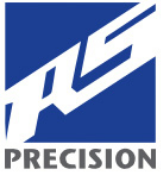by: Monica Farella, Manager, Production Team
Project management during the height of the pandemic often felt like walking on shifting ground. Every day was a constant scramble to anticipate, identify, and address unforeseen variables. As the person responsible for managing the supply chain at RS Precision, project management came down to thinking three steps ahead at every given moment.
Limited forecast and visibility were two of the most significant challenges every business faced during Covid. Every day, a new unforeseen variable was introduced, making it difficult to plan, especially when it came to staffing. For example, if a worker in our shop came into contact with the virus, not only were they sent home to quarantine until the test results came back, but the other three people who worked adjacently also had to be tested and quarantined, leaving that machine vacated. Usually, we could fill those gaps by shifting our cross-trained workers. The challenge came when there was a prototype job running, and the specialized key individuals designated to program and machine the job were the same people out because of Covid. Communication with our customers is always of paramount importance, but even more so during the pandemic.
Although some variables, such as staffing, are within your control, others may be out of your reach. Your vendors and subcontractors may still be dealing with their own pandemic-related challenges, whether they’re short-staffed or just returning from a temporary shutdown. And when it comes to the supply chain, their problems become yours. For example, we were faced with a six-month delay for a desperately-needed material, bringing one of our projects to a complete standstill. The shortage wasn’t isolated to our vendor; it tracked up the supply chain to the supplier. Even though our customers fully understood the reasons behind the delay, we still made sure to reach out to our vendor regularly for status updates and then contacted our clients to keep them abreast of the situation.
While unforeseen variables occurred more frequently during the pandemic, it did force us to stay ahead of the ball, and as the expression goes, “make hay while the sun shines.” To deal with our staffing uncertainties, we built up our inventory through agile planning and scheduling and starting the jobs months in advance of their due date. This allowed us to be flexible with our staffing while ensuring we adhered to our promise to our customers to provide quality product on time. When some of our customers affected by the pandemic had to reduce their orders, we took advantage of the surplus in time and staffing to purchase a multitude of new machines and train our staff to use them. Our skilled machinists are now fully prepared to operate our new, highly capable equipment.
No one wants a repeat of this past year, it is possible to view these supply chain challenges as opportunities in disguise. By being proactive, flexible, and forward-thinking, we were able to do the right thing for our company, our staff, and our customers and emerge from this difficult year with a promising plan for the future.

Monica Farella
Manager, Production Team
With an extensive background in planning, lean manufacturing, supply chain management, and Six Sigma, Monica brings more than 20 year’s manufacturing experience to RS Precision. Her experience includes management positions at Fresh Direct, LLC, precision component manufacturer W.M. Berg, Inc., Ausco, Inc., and Thomas Micron, LLC, where she started her career as a Manufacturing Engineer. Today, she is responsible for the day-to-day management of the RS Precision production staff, including the scheduling of the work. Monica holds a Bachelor of Science degree in Industrial Engineering from the New York Institute of Technology.
